(THE MOB SPEAKS:)
See! There he stands; not brave, but with an air
Of sullen stupor. Mark him well! Is he
Not more like brute than man? Look in his eye!
No light is there; none, save the glint that shines
In the now glaring, and now shifting orbs
Of some wild animal caught in the hunter’s trap.
How came this beast in human shape and form?
Speak man!—We call you man because you wear
His shape—How are you thus? Are you not from
That docile, child-like, tender-hearted race
Which we have known three centuries? Not from
That more than faithful race which through three wars
Fed our dear wives and nursed our helpless babes
Without a single breach of trust? Speak out!
(THE VICTIM SPEAKS:)
I am, and am not.
(THE MOB SPEAKS AGAIN:)
Then who, why are you?
(THE VICTIM SPEAKS AGAIN:)
I am a thing not new, I am as old
As human nature. I am that which lurks,
Ready to spring whenever a bar is loosed;
The ancient trait which fights incessantly
Against restraint, balks at the upward climb;
The weight forever seeking to obey
The law of downward pull—and I am more:
The bitter fruit am I of planted seed;
The resultant, the inevitable end
Of evil forces and the powers of wrong.
Lessons in degradation, taught and learned,
The memories of cruel sights and deeds,
The pent-up bitterness, the unspent hate
Filtered through fifteen generations have
Sprung up and found in me sporadic life.
In me the muttered curse of dying men,
On me the stain of conquered women, and
Consuming me the fearful fires of lust,
Lit long ago, by other hands than mine.
In me the down-crushed spirit, the hurled-back prayers
Of wretches now long dead—their dire bequests.
In me the echo of the stifled cry
Of children for their battered mothers’ breasts.
I claim no race, no race claims me; I am
No more than human dregs; degenerate;
The monstrous offspring of the monster, Sin;
I am—just what I am. . . . The race that fed
Your wives and nursed your babes would do the same
today. But I—
(THE MOB CONCLUDES:)
Enough, the brute must die!
Quick! Chain him to that oak! It will resist
The fire much longer than this slender pine.
Now bring the fuel! Pile it round him! Wait!
Pile not so fast or high! or we shall lose
The agony and terror in his face.
And now the torch! Good fuel that! the flames
Already leap head-high. Ha! hear that shriek!
And there’s another! wilder than the first.
Fetch water! Water! Pour a little on
The fire, lest it should burn too fast. Hold so!
Now let it slowly blaze again. See there!
He squirms! He groans! His eyes bulge wildly out,
Searching around in vain appeal for help!
Another shriek, the last! Watch how the flesh
Grows crisp and hangs till, turned to ash, it sifts
Down through the coils of chain that hold erect
The ghastly frame against the bark-scorched tree.
Stop! to each man no more than one man’s share.
You take that bone, and you this tooth; the chain,
Let us divide its links; this skull, of course,
In fair division, to the leader comes.
And now his fiendish crime has been avenged;
Let us back to our wives and children—say,
What did he mean by those last muttered words,
“Brothers in spirit, brothers in deed are we”?
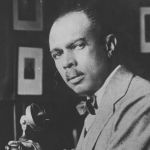


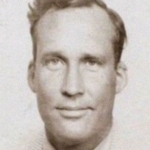






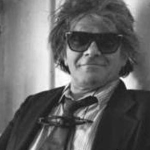



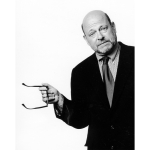
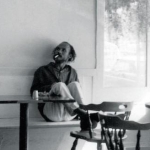
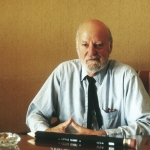
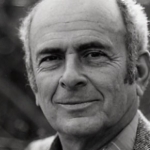
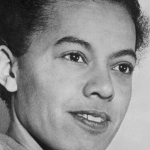
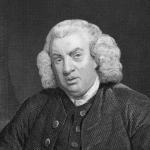
Comment form: